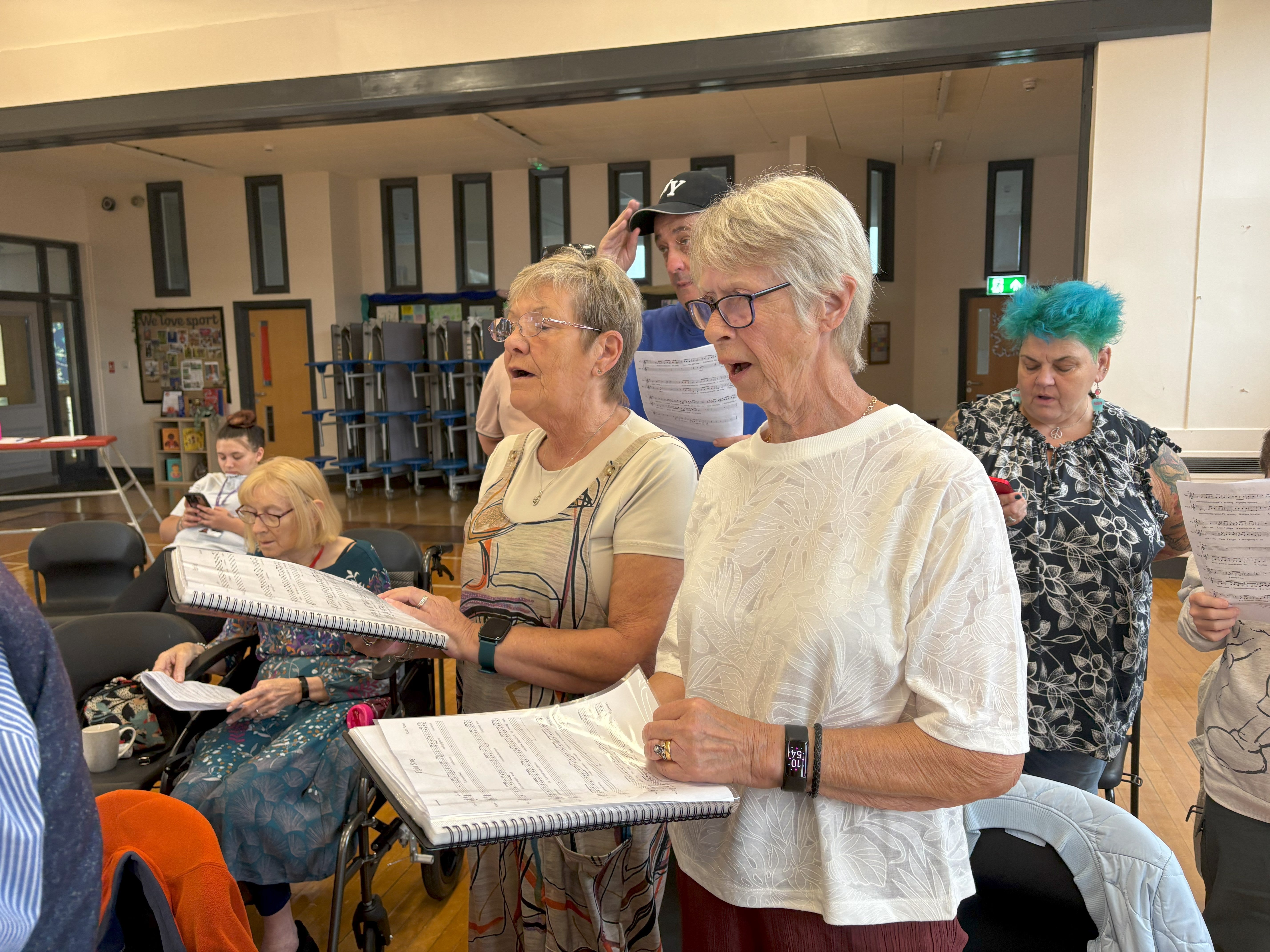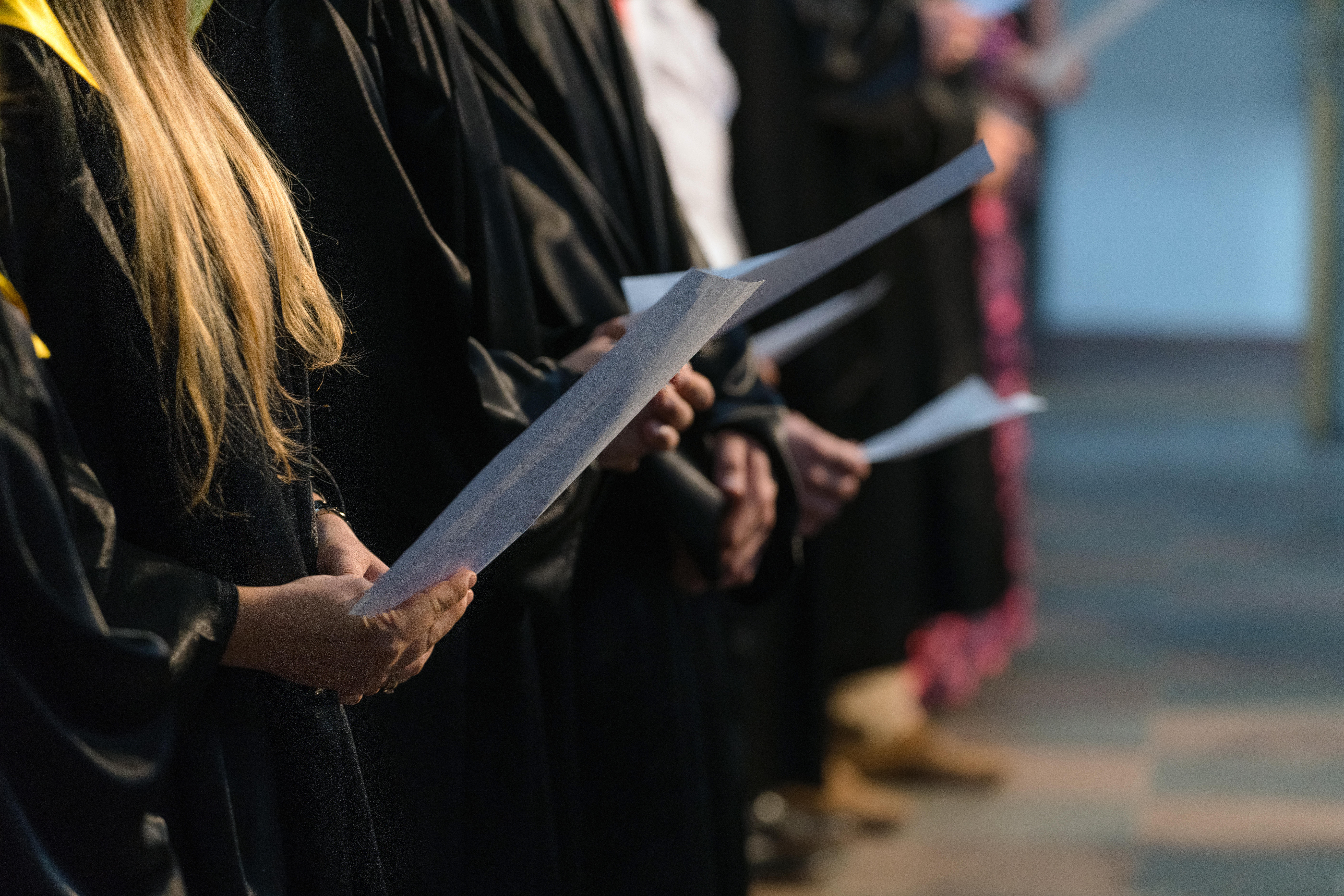Joining a singing group was something Linda Howard had never considered – it simply wasn’t on her radar.
But when she was invited to attend a Musical Connections session for the first time aged 69, she decided to give it a cautious try and hasn’t looked back since.
“I found out about Musical Connections five or six years ago and it was actually my friend Elaine who put me on to it,” shares the 74-year-old. “I’d been diagnosed with COPD (chronic obstructive pulmonary disease) and cancer of the lung and she knew I was poorly, so it was something to get me out the house and do something completely different.
“It was my first time ever joining a singing group. It was something that had never been on my radar at all.”
Musical Connections is a registered charity based in York which runs participatory music sessions and projects for older, isolated and vulnerable people in care and community settings across York.
Since joining the musical programme, Linda’s confidence has soared. Not only has she discovered her singing voice, but she’s also embraced busking, ribbon dancing, and regularly surprises her fellow group members by showing up in an array of playful costumes – always keeping them on their toes.
“Last summer we went busking in town and I bought a Minion costume, so I turned up in that. Then at Christmas, I turned up in an elf outfit and at Easter I got myself a rabbit outfit,” chuckles Linda. “They just don’t know what to expect.”
From building new friendships to boosting confidence, here are some of the benefits Linda has discovered since joining a singing group later in life…

Has helped improve her breath
Singing is often cited as an effective method for improving lung capacity and breath control as it engages the diaphragm and intercostal muscles which are crucial for breathing.
“My lungs were in poor condition, but since joining the singing group and exercising the lungs, my breathing has got a lot better,” says Linda. “All the singing exercises we do, that you wouldn’t do just sat at home on your own, have definitely worked wonders on the lungs.”
Reduces loneliness
“Groups like this are particularly good for older people because if they’re lonely, or things are not so good with their health, it just takes their mind off it and provides a bit of respite for a couple of hours,” highlights Linda.
Many members of her group – which includes people in their 70s, 80s, and even 90s – have experienced the loss of a partner, so these sessions provide a valuable source of companionship and help ease feelings of loneliness.
“I think the singing groups help them feel that little bit of connection and provides somebody to talk to outside their family,” reflects Linda. “There’s one gentleman who’s in his 90s who is a widower and he goes to lots of the groups and thoroughly enjoys it.”
Creates lasting bonds
“We can all relate to each other because we are all in that age group, so we’ve got something in common,” says Linda. “You do get very close to people that you see every week. It’s a great way to meet new people and have a bit of fun.”
Boosts mood and confidence
The biggest change Linda has seen in herself since joining the singing group has been with her confidence.
“I am a confident person but when I meet new people I can be a bit shy,” says Linda. “But this group really brings it out of you, because they just make you so welcome. Music just makes everyone really happy.
“I have become so much more confident with singing out loud. When you first start, you sort of mumble and think oh no I sound awful, but then you just get the confidence and think it doesn’t matter what I sound like, I’m enjoying myself.”
She encourages others who might be keen but nervous to join a similar group to just “bite the bullet”.
“At the first session I was a bit nervous, but once I got there and was introduced to people, everybody made me feel so welcome,” recalls Linda. “So, I’d encourage people to just bite the bullet. You’ll be more than welcomed and will be made to feel at home. You’ll quickly wonder why you hadn’t joined before.”

Provokes nostalgia
Memories associated with particular pieces of music can provoke nostalgia, which can help bring people together.
“We sing all types of music – everything from Oasis to Lion King – and sometimes people will say oh gosh, do you remember that? That is from 1946,” says Linda. “Abby, the project manager at Musical Connections, will always ask for suggestions and last term we did Catch a Falling Star by Perry Como, which is a very old one.
“Catch a Falling Star was particularly nostalgic for me because I had lost my dad and that was one of the songs he used to sing when I was little. When you get a song like that, it just brings back your memories.”
Provides the opportunity to share music with others
“We do a lot of busking in town which is absolutely fantastic,” says Linda. “We have also gone into care homes where people have dementia. When the ladies and gentleman can remember certain songs their faces light up.”
Stimulates the brain
“You definitely have got to have your brain in action during the sessions,” says Linda. “It’s not just a case of going in and singing off a sheet and doing your own thing. You have to concentrate and learn to watch Abby and read where and when you’re coming in.”
Creates a community
“During Covid, Musical Connections set up FaceTimes where they checked up on you which were absolutely brilliant,” shares Linda. “If you’ve got a problem, you can just phone up Abby. If you need transport to get to a session, they’ll arrange all that for you. They’re really good attentive-wise and will know when somebody’s not well and will keep an eye on them.”
Your morning coffee is putting pep in your step — and making you happier too
A heatwave can negatively affect your mood and mind. Here’s how to combat it
Jessie J shares health and music updates amid breast cancer journey
Breakthrough drug that slows onset of type 1 diabetes set for UK release
The 7 common reasons why people lose their appetite later in life
Cats develop dementia in a similar way to humans, study finds







